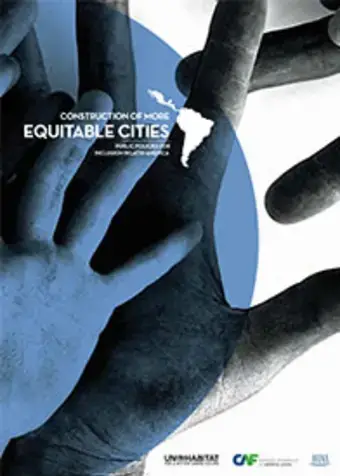This Policy and Plan for Gender Equality and the Empowerment of Women for 2014-19 (PPG) sets out UN-Habitat’s commitment and strategy to ensure that all its activities reflect and advance the global consensus on non-discrimination and equality between men and women.
It provides the means by which UN-Habitat will collaborate with
national and city authorities, and civil society, so that the knowledge, skill and experience of both men and women are included in all aspects of urban development, both as a matter of equality and equity, and so that no resources are overlooked in the quest for inclusive and sustainable urban governance, planning, economic management and basic service delivery

Despite a positive trend in inequality reduction in recent years, Latin American and the Caribbean cities are still the most unequal in the world. The publication Construction of More Equitable Cities: Public Policies for Inclusion in Latin America presented by UN-Habitat and CAF – development bank of Latin America examines, for the first time, income and consumption inequalities in a large sample of cities (over 300) over a period of 20 years (1990-2010). After comparing inequality trends, the study analyzes the factors that have created and reproduced them. It provides evidence of the relationship between inequality and different dimensions of development. The study concludes with policy recommendations that local authorities and other tiers of governments can implement to achieve more equitable cities.
Equality and non-discrimination are the bedrock principles of human rights law. The Universal Declaration of Human Rights states in article 1 that “All human beings are born free and equal in dignity and rights”, and in article 2 that “Everyone is entitled to all the rights and freedoms set forth in this Declaration, without distinction of any kind.
The Handbook will serve as a practical guide explaining the meaning and legal obligations that stem from the human rights to safe drinking water and sanitation, translating the often complicated legal language into information that can be readily understood by practitioners including government officials and members of civil society organizations.